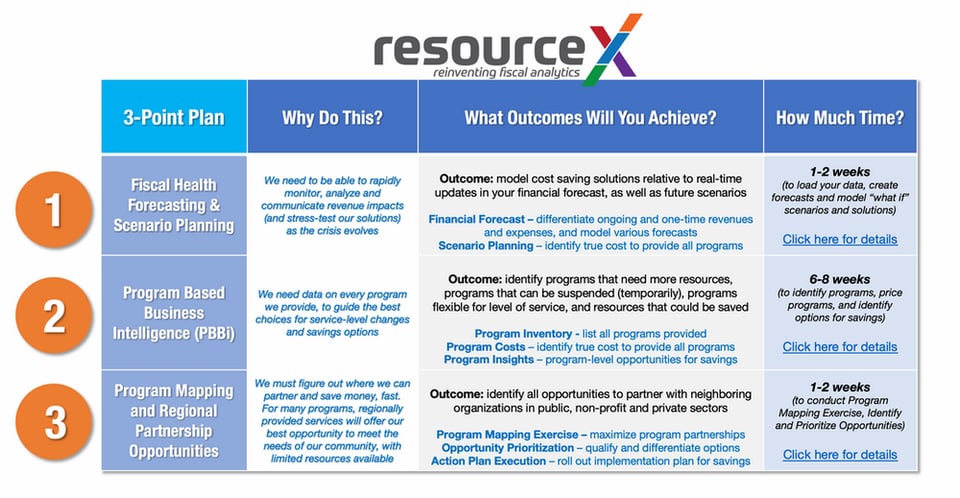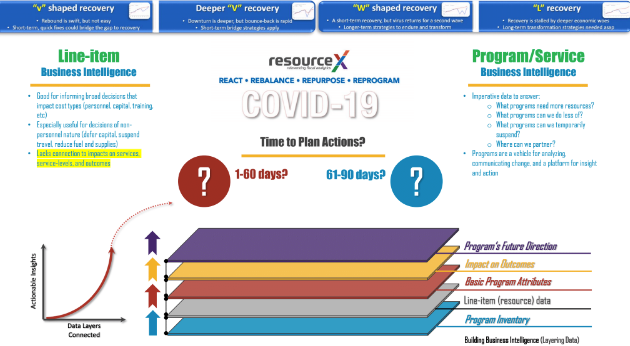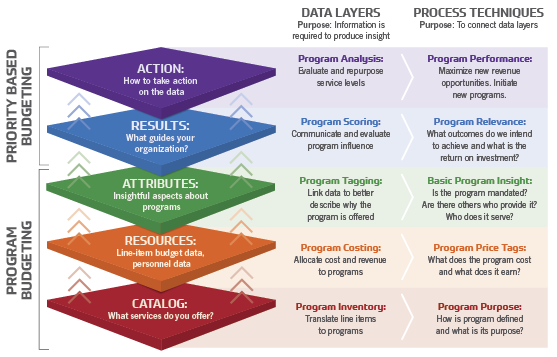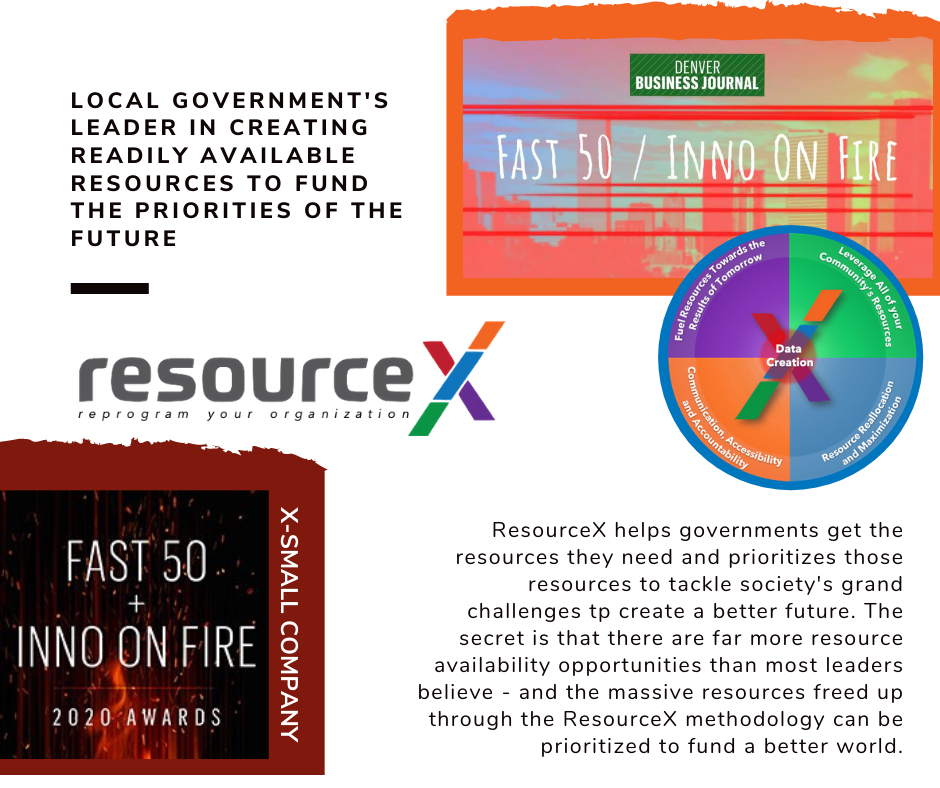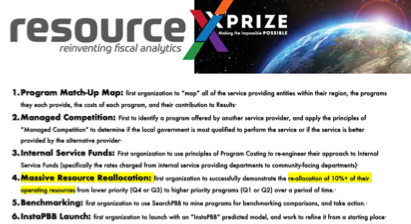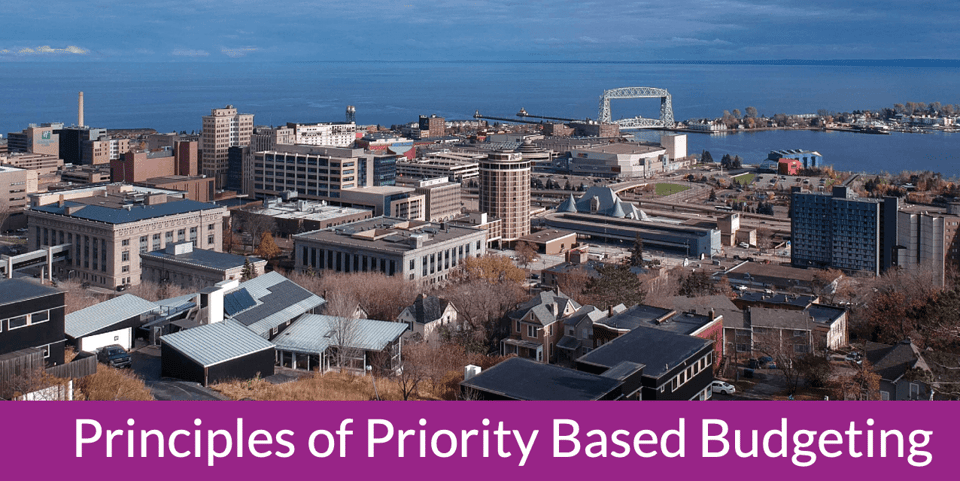React, Rebalance, Rebound
Addressing the Municipal Fiscal Crisis: A 3-Point Plan
The COVID-19 pandemic has created unprecedented challenges across the country. And while there will be more challenges in the days and weeks ahead, we are also planning for emerging from these challenges and how we can support our clients and partners in a strong recovery.
With all forms of local government facing unprecedented fiscal pressure (cities, counties, school districts, transit agencies, etc.), the time is now to address short-term crisis while simultaneously planning for a long-term rebound strategy (and ultimately flourishing).
ResourceX has established a series of strategies to assist in this effort. These strategies are not a silver-bullet and will not be easy, but are proven best-practices that have assisted local governments during the past recession and are actively being deployed to address major challenges during this pandemic crisis.
A Three-point Plan of Action
How are we going to do this? We are proposing a 3-point plan:
First, we need to be able to rapidly monitor, analyze and communicate revenue impacts (and stress-test our solutions) as the crisis evolves. (Fiscal Health Scenario Planning)
Second, we need data on every program we provide, to guide the best choices for service-level changes and savings options. (Program Based Business Intelligence)
Third, we must figure out where we can partner and save money, fast. For many programs, regionally provided shared services will offer our best opportunity to meet the needs of our community, with limited resources available. (Program Mapping)
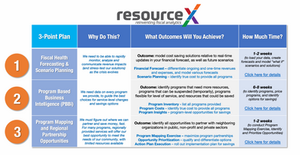
Click to enlarge image (and access links)
Fiscal Health Forecasting & Scenario Planning
Fiscal Health Forecasting & Scenario Planning provides “data visualization” which allows local governments to create a common view of the financial situation that is simple to understand and interpret, describes the clearly defined variables that can impact the financial situation, allows for "live" and "real-time" changes in these variables, and offers the ability for "dynamic" modeling of "what-if" scenarios.
Program Based Business Intelligence (PBBi)
Program Based Business Intelligence (PBBi) is the foundational data set for data-driven decision-making. PBBi builds on and makes use of your line-item data to create more actionable insights at the program level.
PBBi is the foundational data set that unlocks insights pertaining to program efficiency, service levels, and cost recovery opportunities, and that’s why it’s a Best Practice. PBBi date brings you actionable business intelligence through:
Program Inventory – Translate line-items to programs and establish a master program inventory
Program Costing – Assign personnel and non-personnel costs (including FTE) to each program to establish fully-loaded cost of program delivery
Scoring/Evaluation – Assess and identify “impact on desired program outcomes”
Program Data & Insights – Establish Basic Program Attributes for each program including level of mandate, opportunity for partnership, demand for service, cost recovery, etc.
Blueprint for Action – Assess each program through the PBB Blueprint to determine future-focused direction for each program (reduce funding, decrease service levels, provide through a partnership, increase funding, etc.)
Applying Data – Take action and execute program recommendations; repurpose funding for programs that deliver proven results and maximum impact
Program Mapping & Regional Partnership Opportunities
Program Mapping is a unique solution, designed specifically to optimize the alignment of resources across a region with the results that matter most to taxpayers. The regional optimization of resources through shared services!
By understanding their opportunities to leverage other service providers – in both the public and private sectors – they are freeing up resources in their community to successfully address enormous fiscal challenges and better plan for the future.
Call to Action
When crisis strike local governments, many find themselves unprepared for the resultant fiscal challenges and distress. Rather than resorting to the traditional response of merely cutting all budgets by a flat percentage, there are other tools and approaches to fiscal survival that are available.
Implementing a 3-Point Plan for ensuring that forecasting, programmatic based business intelligence and an openness for intergovernmental collaboration will help build resilience for organizations in distress. As opposed to a stress response in the face of a crisis, ResourceX offers the confidence of a proven means for assisting a local government achieve fiscal sustainability.
For more info, visit us at ResourceX or contact us directly.
For the full length pdf version of this article, click to download here.
Related articles
Free Fiscal Forecasting & Scenario Planning training and support
Regional Optimization of Resources through Program Mapping webinar
Program Based Business Intelligence (PBBi) webinar
